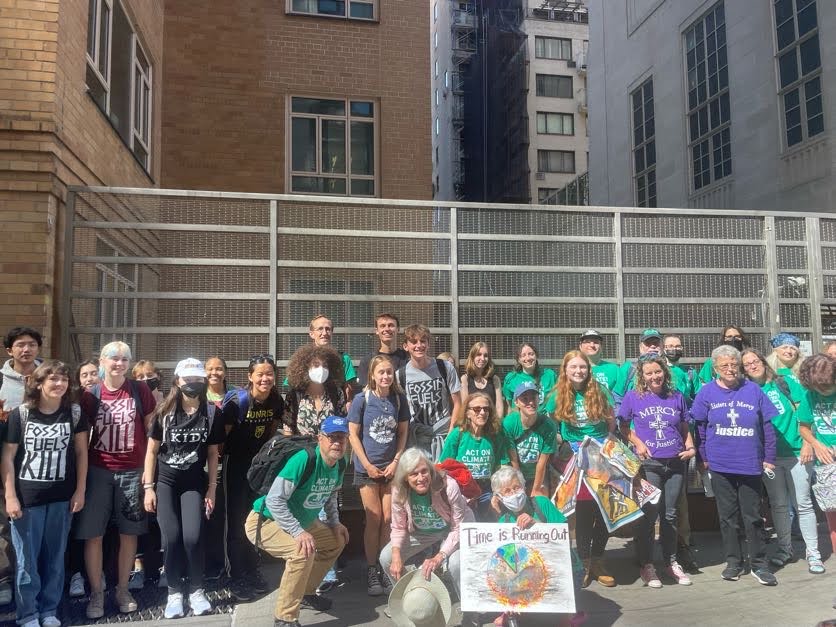Affordable Housing Hub Grows Urban Gardening
March 3, 2016
PROVIDENCE — If you have traveled around the city’s West End this winter you may have noticed a number of buildings going up rather quickly. Wondering what they are and who they belong to?
The answer is Sankofa, a Ghanaian word meaning to go back, get what is yours and make positive progress in the future. The Sankofa Initiative of the West Elmwood Housing Development Corporation (WEHDC) is doing just this.
The initiative was born in 2011, when the WEHDC completed an extensive survey of West End residents that determined their primary concerns centered around health and food. In a predominately low-income neighborhood — 32.5 percent of households live below the poverty level — the survey determined that for many the West End is a food-insecure neighborhood. There isn’t enough access to fresh food, and particularly food that is culturally relevant to the immigrant populations that make up the community, primarily Central American, West African and Southeast Asian.
This lack of access to fresh, ethnic food was an issue of importance relating to health and nutrition. Residents also viewed better access as a way to maintain a connection to their home cultures. Most of those surveyed would willingly grow their own food and shop at a farmers market.
Sankofa is a response to these needs, and has three main elements: an affordable housing development, a large-scale community garden and a weekly World Market. The $15 million project is funded by Rhode Island Housing and work is underway on all aspects.
Sankofa Apartments
The complex consists of 50 affordable units in 10 newly built, energy-efficient buildings. The formerly blighted sites are on Westfield, Wilson, Dexter, Harrison, Sprague and Diamond streets. The units, built with sustainable materials, and feature energy- and water-efficient appliances, will meet or exceed the Environmental Protection Agency’s Energy Star Qualified Homes requirements. The apartments are available to individuals and families who meet low-income criteria and will be filled on a first-come, first-serve basis. Applications can be found at First Realty Management at 230 Dexter St.
Sankofa Farm
One of the larger housing developments at 57 Sprague St. is the home of Sankofa Farm. This parcel of land will house 23 community garden beds for the use of tenants and neighborhood residents, a community greenhouse and a compost facility.
One apartment at this location is designated as the garden coordinator apartment and will be rented to the person who oversees garden operations, in exchange for a $1,200 annual rent reduction. This position is currently available.
The farm also will include some 9,000 square feet of space for up to two market growers. This land will be leased to commercial growers that expect to make their livelihood from farming.
With colorful gardens full of vegetables from around the word, Sankofa Farm is to be the hub of the entire initiative, as community is built around food and culture. Many neighborhood residents see gardening as a way to add more freshness and flavor to their cooking, save money and improve their health.
Gardening classes and cooking demonstrations are in the works, as well as the development of a commercial kitchen space. The residents will have the ability to grow and share otherwise scarcely found produce and celebrate the diversity of the community, while making the neighborhood more food secure.
Adeline Newbold, Sankofa community building project manager, hopes the farm “provides a vibrant community space where neighbors can meaningfully connect and learn about the important resources in their neighborhood.”
World Market
Now in its third year, the Sankofa World Market is a farmers market with an international vibe. Vendors gather in front of the Knight Memorial Library on Wednesday evenings to showcase their produce and crafts. You’ll find African bitter ball, bitter melon and water greens, luffa, collards, amaranth, Asian cabbages, Vietnamese corn, and a variety of gourds and hot peppers. All of this in addition to traditional New England vegetables, and lively global music.
Conroy Outar, who owns Patios Catering & Events, sold his Jamaican food at the market last year. His beef patties and jerk chicken wings were favorites.
“The market has great potential; many young people with a ton of curiosity about other cultures,” he said.
In an area that doesn’t have a significant Caribbean population, Outar found that he had to educate some of his customers about Jamaican flavors and spices.
“People were receptive and open,” Outar said, adding that he looks forward to being involved in the entire Sankofa project.
The market will open again this spring, Outar will be back, and several other growers and vendors from around the globe.




Every building in Rhode Island is going to need to be a part of a farm/garden in the very near future if the residents hope to eat.
Great article- we are so excited for this transformative project taking place and building momentum in our neighborhood. I need to make a very important clarification! The $15 million Sankofa Housing project was made possible by not only Rhode Island Housing, but a mix of important funders, including LIHTC, NeighborWorks America and NeighborWorks Capital, LISC, RI Bond, HOME Funds and City of Providence Affordable Tax Ordinance.